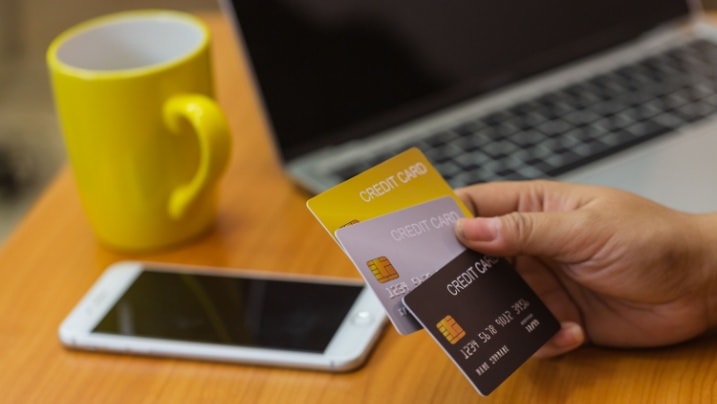CKYC Registry
-
Customer Service Contact us Service request Locate a branch
Find all the help you need
Scan the QR, get our app, and find help on your fingertips

Help CenterSupport topics, Contact us, FAQs and more
-
Login
Are you ready for an upgrade?
Login to the new experience with best features and services
-
Login
Are you ready for an upgrade?
Login to the new experience with best features and services
- Accounts
-
Deposits
IDFC FIRST Bank Deposits
View all Deposits -
Loans
IDFC FIRST Bank Loans
View all Loans - Wealth & Insure
-
Payments
IDFC FIRST Bank Payments
View all Payments -
Cards
IDFC FIRST Bank Cards
View all Cards - Blogs
- Corporate Account
-
Cash Management Services
IDFC FIRST Bank Cash Management Services
View all Cash Management Services - Supply Chain Finance
-
Corporate Lending
IDFC FIRST Bank Lending
View all -
Treasury
IDFC FIRST Bank Treasury
See more details - NBFC Financing
Support topics, Contact us, FAQs and more
- IDFC FIRST Bank Accounts
-
Savings Account
-
Corporate Salary
Account -
Senior Citizens
Savings Account -
First Power
Account -
Current Account
-
NRI Savings
Account -
TASC Institutional
Account -
Savings Account
Interest Calculator
- IDFC FIRST Bank Deposits
-
Fixed Deposit
-
Recurring Deposit
-
NRI Fixed Deposit
-
Safe Deposit Locker
-
FD Calculator
-
RD Calculator
- IDFC FIRST Bank Loans
-
Personal Loan
-
Consumer Durable
Loan -
Home Loan
-
Business Loan
-
Professional Loan
-
Education Loan
-
New Car Loan
-
Pre-owned Car Loan
-
Two Wheeler Loan
-
Pre-owned Two
Wheeler Loan -
Commercial Vehicle
Loan -
Gold Loan
-
Loan Against Property
-
Loan Against Securities
-
Easy Buy EMI card
-
Personal Loan
EMI Calculator -
Education Loan
EMI Calculator -
Home Loan
EMI Calculator
- IDFC FIRST Bank Wealth & Insure
-
FIRST Select
-
FIRST Wealth
-
FIRST Private
-
Mutual Funds
-
Sovereign Gold Bond
-
Demat Account
-
Term Insurance
-
Life Insurance
-
Health Insurance
-
General Insurance
-
Bonds
-
Loan Against
Securities -
Portfolio Management
Service
- IDFC FIRST Bank Payments
-
FASTag
-
Credit Card
Bill Payments -
UPI
-
Funds Transfer
-
Forex Services
-
Pay Loan EMI
- IDFC FIRST Bank Cards
-
Ashva :
Metal Credit Card -
Mayura :
Metal Credit Card -
FIRST Millennia
Credit Card -
FIRST Classic
Credit Card -
FIRST Select
Credit Card -
FIRST Wealth
Credit Card -
FIRST WOW!
Credit Card -
Deals
-
Debit Cards
-
Co-branded Cards
-
Credit Card
EMI Calculator -
FIRST Corporate
Credit Card -
FIRST Purchase
Credit Card -
FIRST Business
Credit Card
- Premium Metal Credit Cards
-
AshvaLifestyle1% Forex₹2,999
-
MayuraLifestyleZero Forex₹5,999
-
FIRST PrivateInvite Only
- Best for travellers
-
MayuraZero ForexMetal₹5,999
-
Ashva1% ForexMetal₹2,999
-
FIRST WOW!Zero ForexTravelLifetime Free
-
FIRST SWYPTravel OffersEMI₹499
-
FIRST Select1.99% ForexLifestyleLifetime Free
-
FIRST Wealth1.5% ForexLifestyleLifetime Free
-
Club VistaraTravelLifestyle₹4,999
-
IndiGo IDFC FIRST Dual Credit CardTravelLifestyle₹4,999
- Max benefits, Free for life
-
FIRST Classic10X RewardsShoppingNever Expiring Rewards
-
FIRST Millennia10X RewardsShoppingNever Expiring Rewards
-
FIRST Select10X RewardsLifestyle1.99% Forex
-
FIRST Wealth10X RewardsLifestyle1.5% Forex
-
FIRST WOW!RewardsTravelZero Forex
-
LIC ClassicRewardsInsuranceShopping
-
LIC SelectRewardsInsuranceShopping
- Reward Multipliers
-
AshvaLifestyleMetal₹2,999
-
MayuraLifestyleZero Forex₹5,999
-
FIRST ClassicNever Expiring RewardsShoppingLifetime Free
-
FIRST MillenniaNever Expiring RewardsShoppingLifetime Free
-
FIRST SelectNever Expiring RewardsLifestyleLifetime Free
-
FIRST WealthNever Expiring RewardsLifestyleLifetime Free
- Rewards & Credit on UPI
-
FIRST Power+FuelUPI₹499
-
FIRST PowerFuelUPI₹199
-
FIRST EA₹NVirtual1% Cashback₹499
-
FIRST DigitalVirtualUPI₹199
-
IndiGo IDFC FIRST Dual Credit CardUPITravelDual cards
- Fuel and Savings
-
FIRST PowerRewardsUPI₹199
-
FIRST Power+RewardsUPI₹499
-
LIC ClassicRewardsInsuranceShopping
-
LIC SelectRewardsInsuranceShopping
- Express and Flaunt
-
AshvaMetal1% Forex₹2,999
-
MayuraMetalZero Forex₹5,999
-
FIRST SWYPEMIOfferMAX₹499
-
FIRST MillenniaRewardsShoppingLifetime Free
- FD Backed rewarding Credit Cards for all
-
FIRST EA₹NVirtualCashback₹499
-
FIRST WOW!Zero ForexTravelLifetime Free
-
CreditPro Balance TransferTransfer & SaveReduce InterestPay Smartly
- IDFC FIRST Bank NRI Forex Solutions
-
Send money to India-Wire transfer
-
Send money to India-Digitally
-
Send money abroad
-
Max Returns FD (INR)
- IDFC FIRST Bank MSME Accounts
-
Platinum Current
Account -
Gold
Current Account -
Silver Plus
Current Account -
Merchant Multiplier
Account -
Agri Multiplier
Account -
TASC Institutional
Account -
Dynamic Current
Account -
World business
Account -
First Startup
Current Account
- IDFC FIRST Bank Business Loans
-
Business Loan
-
Professional Loan
-
Loan Against Property
-
Business Loan for Women
-
Working Capital Loan
-
Construction Equipment Loan
-
Machinery Loan
-
Healthcare Equipment Loan
- IDFC FIRST Bank Business Solutions
-
Payment Solutions
-
Tax Payments
-
Doorstep Banking
-
Point of Sale (POS)
-
Escrow Accounts
-
NACH
-
Payment Gateway
-
UPI
-
Virtual Accounts
-
As per amendment in the Income Tax Rules, PAN or Aadhaar are to be mandatorily quoted for cash deposit or withdrawal aggregating to Rupees twenty lakhs or more in a FY. Please update your PAN or Aadhaar. Kindly reach out to the Bank’s contact center on 1800 10 888 or visit the nearest IDFC FIRST Bank branch for further queries.
-
-
Most Searched
Sorry!
We couldn’t find ‘’ in our website
Here is what you can do :
- Try checking the spelling and search
- Search from below suggestions instead
- Widen your search & try a more generic keyword
Suggested
Get a Credit Card
Enjoy Zero Charges on All Commonly Used Savings Account Services
Open Account Now
Credit Card
Pros and Cons of Having Multiple Credit Cards
Key Takeaways
Cashback credit cards offer monetary rewards on your transactions, helping you save more with every spend.
Multiple credit cards can help you maximise the cashbacks available on different transactions.
However, owning multiple cards is also prone to overspending, a fall in credit score, and added expenses through the card’s annual fee.
You can manage multiple accounts through the auto-debit facility, setting up spending limits, monitoring transactions, etc.
Rohan had a rewarding cashback credit card which offered attractive savings on grocery and lifestyle spends. However, he was a frequent traveller and his credit card did not offer many travel perks.
But, Ritesh, Rohan’s friend, had a travel credit card which offered cashbacks on flight and hotel bookings. Sadly, there were few benefits on lifestyle or monthly grocery bills.
Their mutual friend, Satish, advised them to apply for other cashback credit cards that offered category-based rewards. Rohan applied for a travel and fuel credit card to enjoy cashback on travel and fuel transactions, while Ritesh applied for a lifestyle, shopping, and fuel credit card for all-around savings.
Do you think Rohan, Ritesh, and Satish owning multiple credit cards was a smart choice or overkill?
Let’s explore the meaning of cashback credit cards and the pros and cons of owning multiple ones.
READ MORE
How do cashback credit cards work?
Cashback credit cards offer cash returns on specific transactions. For instance, if you choose a fuel credit card, you get cashback on every fuel transaction. If there’s a 5% cashback and you spend ₹1000, you earn a cashback of ₹50.
This cashback is credited to your credit card bill , allowing you to save on your overall transactions.
Multiple cashback credit cards - Why they are beneficial
There are different types of credit cards, like:
- Travel cards
- Fuel cards
- Shopping cards
- Lifestyle cards, etc.
Each of these cards offers cashback and other privileges on its relevant transactions. For instance, travel credit cards offer benefits in the travel industry, while fuel credit cards reward you on fuel transactions.
Owning multiple credit cards can, thus, offer the following benefits:
1. Higher savings
With multiple cashback credit cards offering cash rewards on specific categories, you can amplify the aggregate savings and rewards on most of your transactions. This converts to better savings too.
2. Improvement in credit score
Each card has its own credit limit. Having multiple cards increases your total available credit. If you use only a small portion of that, your credit utilisation stays low — this can help boost your credit score.
For instance, say the credit limit on one card is ₹1 lakh, and you use ₹20,000 on average every month. Your credit utilisation ratio will be 20% (₹20,000/₹1 lakh X 100).
Now, if you get another credit card with a credit limit of ₹1 lakh and your usage increases marginally to ₹30,000, your credit utilisation ratio would reduce to 15%. (₹30,000 / ₹2 lakh X 100)
As the ratio drops, your credit score will increase because lenders view lower credit utilisation as a sign of responsible credit behaviour. It shows that you’re not overly reliant on credit, which makes you a lower-risk borrower in their eyes.
Now, let’s understand the downside of owning multiple credit cards.
The risks of owning multiple cashback credit cards
While multiple cards can help you maximise the cashbacks, there are a few drawbacks you must know about. Some of these drawbacks are as follows -
1. Difficulty in managing multiple cards
Remembering different due dates of multiple cards can prove difficult. If you miss paying a bill, you will incur high interest charges, and your credit score will also be negatively affected.
2. Risk of overspending
The higher credit limit works as a double-edged sword. While it increases your purchasing power, it can also tempt you to overspend. Spending beyond affordability can land you in a debt trap.
3. Effect on credit score
Whenever you apply for a new credit card, a hard enquiry is made on your credit score. Applying for multiple credit cards within a short interval can negatively impact your credit score.
4. Added expense
Credit cards might come with a joining and annual fee. With multiple cards, the aggregate spending on fees would increase, potentially harming your monthly budget.
Is managing multiple credit cards right for you?
Use this quick 3-step checklist to decide:
1. Understand your spending habits
- Are you disciplined with spending?
- Do you regularly pay your credit card bills in full and on time?
If yes, you may be ready to handle the added responsibility of a second card.
2. Check your credit score
- Is your credit score healthy (typically 730 or above)?
- Have you avoided late payments or maxing out your limits?
A good score indicates that you’re managing your credit well and may qualify for better credit card offers.
3. Be clear about your purpose
- Are you getting another card for better rewards, a higher credit limit, or specific benefits (e.g., travel, fuel, shopping)?
- Do you have a plan to track and manage multiple due dates?
If you have a clear reason and plan, adding a new card can work to your advantage.
What should you do when you own multiple cards?
Owning more than one cashback credit card has its share of pros and cons. So, what should be an ideal choice for you?
Owning multiple credit cards is a good solution. However, to mitigate the risks, you can use the following strategies:
- Set up spending limits on your credit cards
- Track your transactions regularly
- Choose cards that offer the maximum cashback, like IDFC FIRST Bank Credit Cards
- Set up an auto-debit mandate on your bank account to pay credit card bills automatically without fail
- Do not apply for multiple cards at the same time. Space out your applications to minimise the damage to your credit score
- Choose cards that have zero or minimal joining and annual fees so that you can save on the added expense
IDFC FIRST Bank Credit Cards - Your gateway to rewarding transactions
If you're looking for a rewarding cashback credit card, consider the FIRST EA₹N Credit Card. Backed by a minimum fixed deposit of Rs 5,000, the FIRST EA₹N Credit Card is available to everyone, regardless of their credit history.
Here’s what makes the FIRST EA₹N Credit Card an excellent cashback credit card:
- Virtual RuPay credit card for easy online payments, including UPI
- Up to 1% cashback on all UPI spends
- 100% cashback up to ₹500 on the first UPI transaction
- 5% cashback up to ₹1,000 on the transaction value of the first EMI
- 100% cashback up to ₹200 on the first four UPI transactions via the IDFC FIRST Bank Mobile Banking App every year
- 25% off up to ₹100 on movie tickets every month with District
- Manage your credit card easily through the digital-first IDFC FIRST Bank Mobile Banking App
Spend smartly with the right credit cards in your wallet
Who doesn’t like saving?
Choosing the right cashback credit card means more money in your pockets. So, assess your spending habits and pick suitable cards to enjoy maximum benefits. However, ensure effective credit card management to avoid the disadvantages.
Level up with the FIRST EA₹N Credit Card and maximise the cashbacks on your transactions today.
Disclaimer
The contents of this article/infographic/picture/video are meant solely for information purposes. The contents are generic in nature and for informational purposes only. It is not a substitute for specific advice in your own circumstances. The information is subject to updation, completion, revision, verification and amendment and the same may change materially. The information is not intended for distribution or use by any person in any jurisdiction where such distribution or use would be contrary to law or regulation or would subject IDFC FIRST Bank or its affiliates to any licensing or registration requirements. IDFC FIRST Bank shall not be responsible for any direct/indirect loss or liability incurred by the reader for taking any financial decisions based on the contents and information mentioned. Please consult your financial advisor before making any financial decision.
The features, benefits and offers mentioned in the article are applicable as on the day of publication of this blog and is subject to change without notice. The contents herein are also subject to other product specific terms and conditions and any third party terms and conditions, as applicable. Please refer our website www.idfcfirstbank.com for latest updates.























